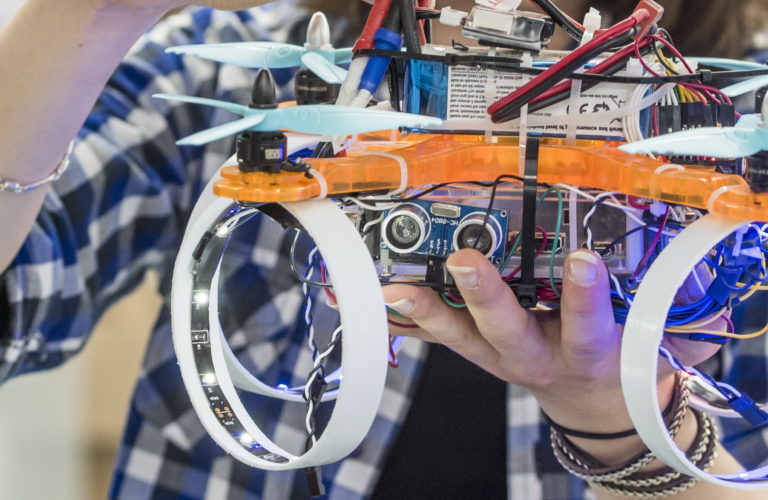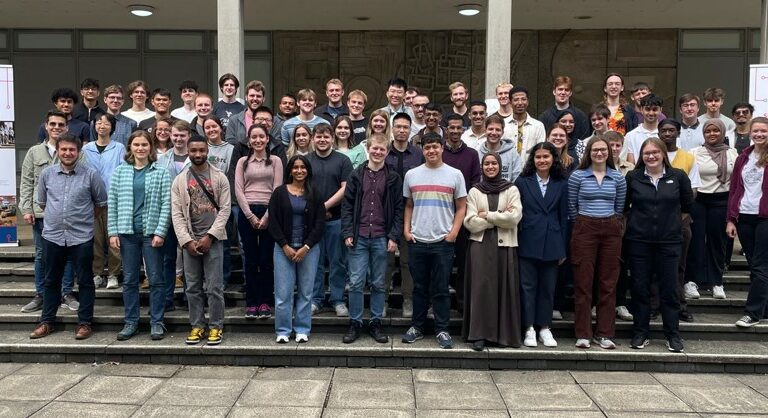“At the macro-level, the skills challenge can be distilled to this: getting good people into the workplace with the right skills and then ensuring that they develop and grow throughout their careers…”
This blog post is based upon an abridged version my presentation at the recent TechWorks Industry Summit.
I wanted to share with you something that caught my eye recently; it said “Millennials will make up more than 50% of the workforce by 2025”. Here is another thought: those engineering students starting their Electronics degrees this autumn won’t graduate until 2022, or more likely 2023, if they are studying on four-year MEng degree or at a Scottish university. Most, if not all, will have been born after the turn of Millennium.
I don’t say this to make us feel old. We are what we are. I graduated from university with my Electronics degree in 1986. So my continuing claim to be still in my ‘early 50s’ is beginning to sound increasingly dubious. Rather, I say it to make three points about skills:
- Firstly, We need to think about future skills now. We know automation will accelerate the shift in the skills required by the workforce that we have already seen over the past ten years since the UKESF was founded. Undoubtedly, demand for advanced technological skills will continue to grow rapidly. But social, emotional and higher cognitive skills, such as creativity, critical thinking and complex information processing, will also see growing demand.
- Secondly, Millennials think and act differently. Their expectations and motivations are different from ours, and so organisations need to be agile and adaptable. How to reconcile notions like “empower Millennials and they’ll figure it out” with well-established corporate processes and organisational paradigms will be the key to future success.
- Finally, Making changes takes time. It is no good expecting instant results. The people and skills pipelines have long incubation periods. Making rapid changes is simply not possible. For instance, as I mentioned, most students starting engineering courses now will not graduate until 2023.
At the macro-level, the skills challenge can be distilled to this: getting good people into the workplace with the right skills and then ensuring that they develop and grow throughout their careers, as circumstances change and workforces evolve in response.
In terms of graduates with the right skills, we often hear a ‘grumble’ among industrialists about universities not producing graduates that are somehow ‘fit for purpose’. Therefore, it is heartening that the Engineering Professor’s Council and the IET are taking positive steps, with their “New Approaches” (see here). Their changes are based on six important principles for future engineering education. These include more creativity, better industry engagement and experience of the workplace for students. Which brings us back to the UKESF.
At university, our undergraduate Scholarship Scheme goes from strength to strength. This year we will be awarding our 500th scholarship and we now have 23 universities, right across the UK, as partners. Of the 275 graduates so far from our scheme, we know that 84% are employed in our sector and a further 14% are doing post-graduate study and research. So, we are delivering and having a positive impact. Work placements are a vital part of the Scholarship Scheme and we are delighted to work with a wide range of leading companies, helping connect them with students from top universities.
As we approach our 10th anniversary we are working hard, on behalf of TechWorks members and the wider Electronics sector, to tackle the skills challenge that we all face. To find out more about our Scholarship Scheme then see here. With your donations and support, we can grow our programme and do even more to help.



